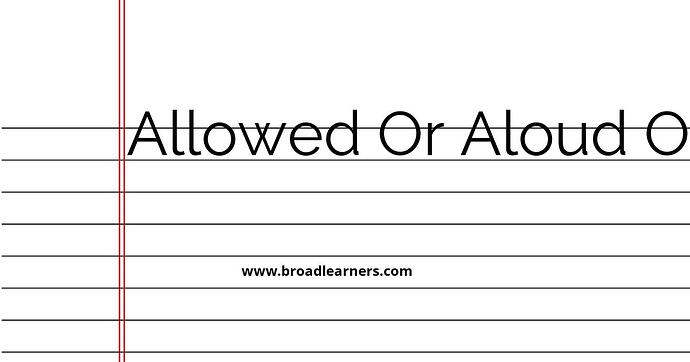'Allowed', 'aloud', and 'allowed' are commonly confused words in English grammar. Understanding the difference between 'allowed', 'aloud', and 'allowed' is important to use them correctly in written and spoken English.
'Allowed' is the past tense and past participle of the verb 'allow', which means to give permission or consent for something. It is used to indicate that someone has been given permission to do something.
'Aloud' is an adverb that means out loud or audibly. It is used to describe something that is spoken or performed audibly, as opposed to silently or quietly.
'Allowed' is the correct spelling of the word that means to give permission or consent for something. It is used in various contexts to indicate permission or allowance.
Let's take a closer look at the meanings and usage of 'allowed', 'aloud', and 'allowed'.
| 'Allowed' | 'Aloud' | 'Allowed' |
|---|---|---|
| The word 'allowed' is the past tense and past participle of the verb 'allow'. | The word 'aloud' is an adverb that means out loud or audibly. | The word 'allowed' is the correct spelling of the word that means to give permission or consent for something. |
|
|
|
To remember the difference between 'allowed', 'aloud', and 'allowed', it can be helpful to remember their meanings and usage:
- 'Allowed' refers to giving permission or consent for something.
- 'Aloud' describes something that is spoken or performed audibly.
- 'Allowed' is the correct spelling of the word that means to give permission or consent for something.
Here are some examples of correct usage:
- I was allowed to bring my own food to the party.
- She read the poem aloud to the audience.
- Smoking is not allowed in the park.
Remembering the correct usage of 'allowed', 'aloud', and 'allowed' will improve your grammar and communication skills.
